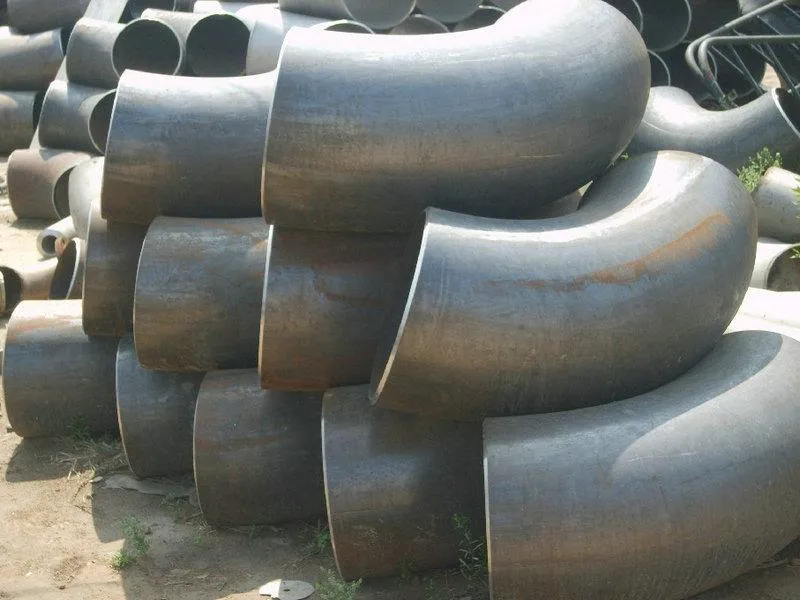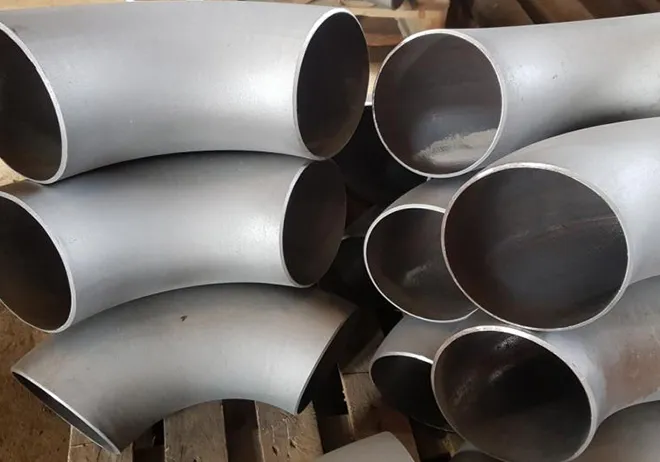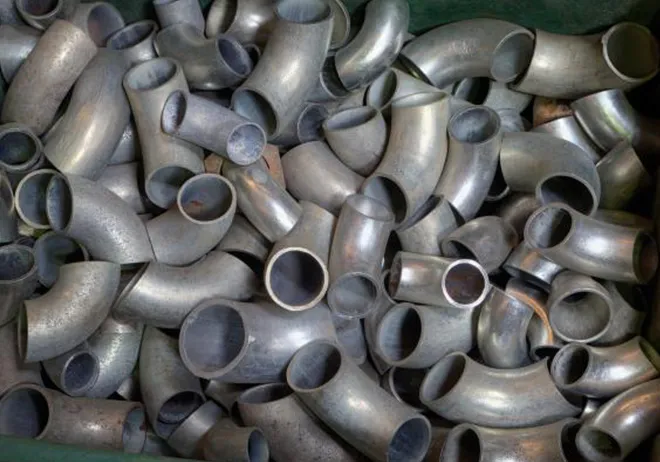-
Cangzhou Yulong Steel Co., Ltd.
-
Phone:
+86 13303177267 -
Email:
admin@ylsteelfittings.com
- English
- Arabic
- Italian
- Spanish
- Portuguese
- German
- kazakh
- Persian
- Greek
- French
- Russian
- Polish
- Thai
- Indonesian
- Vietnamese
- Zulu
- Korean
- Uzbek
- Hindi
- Serbian
- Malay
- Ukrainian
- Gujarati
- Haitian Creole
- hausa
- hawaiian
- Hebrew
- Miao
- Hungarian
- Icelandic
- igbo
- irish
- Japanese
- Javanese
- Kannada
- Khmer
- Rwandese
- Afrikaans
- Albanian
- Amharic
- Armenian
- Azerbaijani
- Basque
- Belarusian
- Bengali
- Bosnian
- Bulgarian
- Catalan
- Cebuano
- China
- China (Taiwan)
- Corsican
- Croatian
- Czech
- Danish
- Esperanto
- Estonian
- Finnish
- Frisian
- Galician
- Georgian
- Kurdish
- Kyrgyz
- Lao
- Latin
- Latvian
- Lithuanian
- Luxembourgish
- Macedonian
- Malgashi
- Malayalam
- Maltese
- Maori
- Marathi
- Mongolian
- Myanmar
- Nepali
- Norwegian
- Norwegian
- Occitan
- Pashto
- Dutch
- Punjabi
- Romanian
- Samoan
- Scottish Gaelic
- Sesotho
- Shona
- Sindhi
- Sinhala
- Slovak
- Slovenian
- Somali
- Sundanese
- Swahili
- Swedish
- Tagalog
- Tajik
- Tamil
- Tatar
- Telugu
- Turkish
- Turkmen
- Urdu
- Uighur
- Welsh
- Bantu
- Yiddish
- Yoruba

Dec . 05, 2024 09:42 Back to list
The Role of Butt Weld Elbows in Pipeline Systems: Ensuring Seamless Flow
In pipeline systems, maintaining a continuous, efficient flow of fluids or gases is critical. A key component in achieving this goal is the use of butt weld elbows, which allow for directional changes in the pipeline while ensuring minimal disruption to the flow. These elbows play a crucial role in maintaining system integrity, reducing turbulence, and minimizing the potential for pressure loss. This article explores the significance of butt weld elbows in pipeline systems and how they contribute to seamless flow.

What are Butt Weld Elbows?
Butt weld elbows are pipe fittings used to change the direction of flow in a pipeline. They are designed with a smooth, seamless transition that ensures minimal resistance to the flow of liquids, gases, or other materials. The "butt weld" refers to the method of joining the elbow to the pipe, where the ends of the elbow and pipe are aligned and welded together. This creates a strong, permanent connection that is particularly useful in high-pressure and high-temperature environments.
Ensuring Seamless Flow in Pipeline Systems With Butt Weld Elbows
The primary function of weld on pipe elbows in pipeline systems is to guide the flow of materials through turns, bends, or other directional changes without causing significant disturbances. These elbows are designed to provide a smooth transition, preventing turbulence that can lead to pressure drops or inefficient flow. By minimizing these disruptions, butt weld elbows contribute to the overall efficiency and effectiveness of the pipeline system.
A smooth transition is essential because turbulence within the pipeline can create uneven pressure distribution, leading to increased energy consumption, erosion, and wear on the system components. With their precision-engineered design, butt weld elbows reduce such risks and help maintain a steady flow rate throughout the pipeline.
Maintaining Structural Integrity With Butt Weld Elbows
In addition to ensuring smooth flow, butt elbow also play an important role in maintaining the structural integrity of the pipeline. The welded connection between the elbow and the pipe provides a durable and secure bond that can withstand high pressures and temperatures. This is especially important in industries such as oil and gas, power generation, and chemical processing, where pipelines often operate under extreme conditions.
The strength of the welded joint also prevents leaks, which could otherwise compromise the safety and efficiency of the system. Since butt weld elbows are typically welded to the pipe at both ends, they eliminate the need for additional fasteners or gaskets, further reducing the risk of leaks and ensuring a more reliable system.
Minimizing Pressure Loss With Butt Weld Elbows
One of the key advantages of butt weld elbows over other types of elbows, such as threaded or socket weld elbows, is their ability to minimize pressure loss. Because they are welded directly to the pipe, butt weld elbows provide a smooth, uniform connection with minimal disruption to the flow. This reduces the likelihood of pressure drops that could occur at the point of connection.
In contrast, threaded or socket weld elbows often introduce small gaps or irregularities that can cause turbulence and pressure loss. By using butt weld elbows, engineers can ensure a more efficient flow with less energy required to maintain the pressure, ultimately improving the overall performance of the pipeline system.
Resistance to Corrosion and Wear About Butt Weld Elbows
Another important consideration in pipeline design is the durability of the components used, especially in systems where the transported materials are corrosive or abrasive. Butt weld elbows are available in a range of materials, including carbon steel, stainless steel, and alloys, each offering different levels of resistance to corrosion, wear, and thermal stress.
For instance, stainless steel butt weld elbows are commonly used in industries such as food processing, pharmaceuticals, and chemical manufacturing, where resistance to corrosion is crucial. These materials not only ensure a long-lasting connection but also prevent the buildup of deposits or scaling that can impede flow or damage the system over time.
By selecting the appropriate material for the elbow, engineers can ensure that the pipeline system remains robust and functional over its expected lifespan, even in harsh operating conditions.
Application in High-Pressure and High-Temperature Systems About Butt Weld Elbows
Butt weld elbows are particularly valuable in high-pressure and high-temperature pipeline systems, where other types of pipe fittings might fail due to the extreme conditions. Their ability to handle significant stress without compromising structural integrity makes them a reliable choice in industries like power generation, petrochemicals, and oil and gas.
In high-pressure applications, the welded connection between the elbow and the pipe prevents leaks and ensures a strong, secure bond that can withstand the forces exerted by the fluids or gases inside the pipeline. Similarly, in high-temperature environments, materials like stainless steel or alloy steel butt weld elbows can maintain their strength and resistance to thermal expansion, ensuring that the pipeline system operates efficiently under challenging conditions.
Ease of Maintenance and Inspection About Butt Weld Elbows
Butt weld elbows also simplify maintenance and inspection processes in pipeline systems. Since the welded connection is permanent and requires no additional fasteners or joints, there are fewer points of potential failure. This makes it easier to inspect the system for signs of wear or damage, as there are fewer connections that need to be checked.
Latest news
-
ANSI 150P SS304 SO FLANGE
NewsFeb.14,2025
-
ASTM A333GR6 STEEL PIPE
NewsJan.20,2025
-
ANSI B16.5 WELDING NECK FLANGE
NewsJan.15,2026
-
ANSI B16.5 SLIP-ON FLANGE
NewsApr.19,2024
-
SABS 1123 FLANGE
NewsJan.15,2025
-
DIN86044 PLATE FLANGE
NewsApr.19,2024
-
DIN2527 BLIND FLANGE
NewsApr.12,2024
-
JIS B2311 Butt-Welding Fittings LR/SR 45°/90° /180°Seamless/Weld
NewsApr.23,2024













